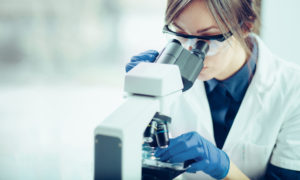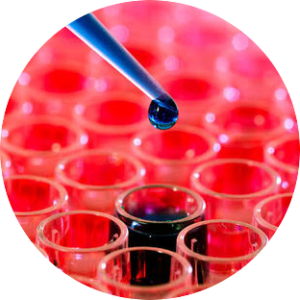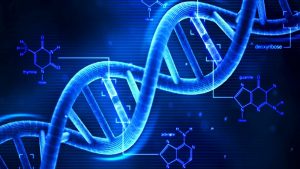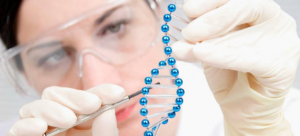Lesch-Nyhan (LNS) Syndrome Specimens
Bay Biosciences provides high quality, clinical grade bio-samples, cryogenically preserved sera (serum), plasma and peripheral blood mononuclear cells (PBMC) biofluid specimens from patients diagnosed with Lesch-Nyhan disease.
The sera (serum), plasma and PBMC biofluid samples are processed from patient’s peripheral whole-blood using customized processing protocols. The Lesch-Nyhan Syndrome bio-specimens are collected from unique patients diagnosed with Lesch-Nyhan disease and are provided to a valued pharmaceutical customer for translational research, genomics, proteomics and biomarker research, drug discovery and development.

Lesch-Nyhan Disease Overview
Lesch–Nyhan Syndrome (LNS) is a rare inherited disorder caused by a deficiency of the enzyme hypoxanthine-guanine phosphoribosyl transferase (HPRT) LNS is a rare genetic disorder that occurs most often in male patients and it leads to an overproduction of uric acid (a waste product in the bloodstream. This can, in turn, lead to the development of gouty arthritis as well as bladder and kidney stones. This deficiency occurs due to mutations in the HPRT1 gene located on the X chromosome.
The Lesch-Nyhan disease also manifests as a range of neurological symptoms, including abnormal involuntary muscle movements, with most with this condition being unable to walk. Self-injury behaviors such as head banging and nail-biting are also commonly seen.
The HPRT deficiency causes a build-up of uric acid in all body fluids. The combination of increased synthesis and decreased utilization of purines leads to high levels of uric acid production. This results in both high levels of uric acid in the blood and urine, associated with severe gout and kidney problems.
Neurological signs include poor muscle control and moderate intellectual disability. These complications usually appear in the first year of life. Beginning in the second year of life, a particularly striking feature of LNS is self mutilating behavior, characterized by lip and finger biting. Neurological symptoms include facial grimacing, involuntary writhing, and repetitive movements of the arms and legs similar to those seen in Huntington’s disease. The cause of the neurological abnormalities remains unknown. Because a lack of HPRT causes the body to poorly utilize vitamin B-12 , some male patients may develop megaloblastic anemia.
Lesch-Nyhan Syndrome (LNS) is inherited in an X-linked recessive manner, the gene mutation is usually carried by the mother and passed on to her son, although one-third of all cases arise de novo (from new mutations) and do not have a family history. LNS is present at birth in baby boys. Most, but not all, persons with this deficiency have severe mental and physical problems throughout life. There are a few rare cases in the world of affected females.
The symptoms caused by the buildup of uric acid, gout and kidney symptoms respond well to treatment with medications that reduce the levels of uric acid in the blood. The mental deficits and self-mutilating behavior do not respond well to treatment. There is no cure, but many affected people live to adulthood. Several new experimental treatments may alleviate symptoms.

Lesch-Nyhan Syndrome (LNS) Symptoms
Signs and symptoms of Lesch-Nyhan Syndrome (LNS) are usually first seen when a child is as young as six months old, and female carriers tend to not display symptoms. These include:
- Behavioral Abnormalities: Some children with the condition may find it difficult to control behaviors and are prone to screaming and irritability.
- Cartilage Deposits: Older children with the disorder often have uric deposits that collect in cartilage. When these cause bulges in the ears, the condition is called tophi.
- Chorea: Another issue that arises is chorea, involuntary, purposeless, and repetitive body movements. These can include grimacing, shoulder raising and lowering, as well as finger flexing.
- Development Delay: Infants and toddlers with the condition may also experience delayed developmental milestones, such as sitting up, crawling, and walking.
- Dysphagia: Children and infants often also have dysphagia, defined as an inability to swallow effectively.
- Dystonia: Many of those with this condition experience dystonia, characterized by involuntary writhing in the arms and legs.
- Dysarthia: The ability to articulate speech and pronounce words, dysarthia is also a common hallmark.
- Hypertonia: Children with this condition may develop hypertonia, defined as over-developed musculature. Often, this is paired with spasticity increased rigidity of muscles.
- Hypotonia: In infants, Lesch-Nyhan syndrome can lead to under-development of certain muscle groups, sometimes leading to an inability to hold the head up.
- Muscle spasm: Lesch-Nyhan syndrome is often characterized by strong muscle spasms that lead to severe arching of the back. The head and heels in these cases can also bend backward.
- Orange sand: In infants with the condition, the excess production of uric acid can lead to orange deposits often called “orange sand” in the diapers.
- Pain and swelling in the joints: In teens and adults, urate crystals can form in the joints of untreated individuals, leading to gout-like Pain and swelling.
- Self-Mutilation: Majority of Lesch-Nyhan Syndrome (LNS) patients display self-mutilating behaviors, such as compulsive lip, hand, or finger biting as well as head banging. These symptoms typically arise between the ages of two and three.
- Spasticity: Rigidity of the tendons, termed hyperreflexia, is also seen in these cases.
- Intellectual disability: Moderate intellectual disability often occurs with this condition, though many with it do not display this symptom.
- Urate stones: Infants may also develop kidney stones, which can lead to blood in the urine and raises the risk of urinary tract Infections.
.

Lesch-Nyhan Syndrome (LNS) Diagnosis
Since an elevated level of uric acid in the blood is a hallmark of the disease , blood testing can identify Lesch-Nyhan syndrome. Specifically, the absence of HPRT in tissues will confirm diagnosis. Genetic testing, in which expectant parents are tested for mutations of the HPRT1 gene, can also be conducted to determine carriers. In addition, an approach called enzyme analysis which measures levels of enzymes can be used prenatally.

Detailed clinical data, novel molecular biology with genetic testing (Diagnostic triad for LNS) elevated biomarker levels, genetic and metabolic information, pathology annotations associated with the Lesch-Nyhan Syndrome patient’s specimens is provided to a valued customer for drug discover, development and research. The Lesch-Nyhan disease sera (serum), plasma and PBMC biofluid samples are processed from patients peripheral whole-blood using customized collection and processing protocols provided by the researcher.
Bay Biosciences is a global leader in providing researchers with high quality, clinical grade, fully characterized human tissue samples, bio-specimens and human bio-fluid collections from cancer (tumor) tissue, cancer sera (serum), cancer plasma, cancer PBMC and human tissue samples from most other therapeutic areas and diseases.
Bay Biosciences maintains and manages it’s own bio-repository, human tissue bank (biobank) consisting of thousands of diseased samples (specimens) and from normal healthy donors available in all formats and types. Our biobank procures and stores fully consented, deidentified and institutional review boards (IRB) approved human tissue samples and matched controls.
All our human human tissue collections, human specimens and human bio-fluids are provided with detailed samples associated patient’s clinical data. This critical patient’s clinical data includes information relating to their past and current disease, treatment history, lifestyle choices, biomarkers and genetic information. Patient’s data is extremely valuable for researchers and is used to help identify new effective treatments (drug discovery & development) in oncology, other therapeutic areas and diseases. This clinical information is critical to demonstrate their impact, monitor the safety of medicines, testing & diagnostics, and generate new knowledge about the causes of disease and illness.
Bay Biosciences banks wide variety of human tissue samples and biological samples including cryogenically preserved -80°C, fresh, fresh frozen tissue samples, tumor tissue samples, FFPE’s, tissue slides, with matching human bio-fluids, whole blood and blood derived products such as serum, plasma and PBMC’s.
Bay Biosciences is a global leader in collecting and providing human tissue samples according to the researchers specified requirements and customized, tailor made collection protocols. Please contact us anytime to discuss your special research projects and customized human tissue sample requirements.
Bay Biosciences provides human tissue samples (human specimens) from diseased and normal healthy donors; including peripheral whole-blood, amniotic fluid, bronchoalveolar lavage fluid (BAL), sputum, pleural effusion, cerebrospinal fluid (CSF), serum (sera), plasma, peripheral blood mononuclear cells (PBMC’s), saliva, Buffy coat, urine, stool samples, aqueous humor, vitreous humor, kidney stones, renal calculi, nephrolithiasis, urolithiasis and other bodily fluids from most diseases including cancer. We can also procure most human bio-specimens and can do special collections and requests of human samples that are difficult to find. All our human tissue samples are procured through IRB approved clinical protocols and procedures.
In addition to the standard processing protocols Bay Biosciences can also provide human plasma, serum, PBMC bio-fluid samples using custom processing protocols, you can buy donor specific sample collections in higher volumes and specified sample aliquoting from us.
Bay Biosciences also provides human samples from normal healthy donors, volunteers, for controls and clinical research, contact us Now.
日本のお客様は、ベイバイオサイエンスジャパンBay Biosciences Japan またはhttp://baybiosciences-jp.com/contact/までご連絡ください。


